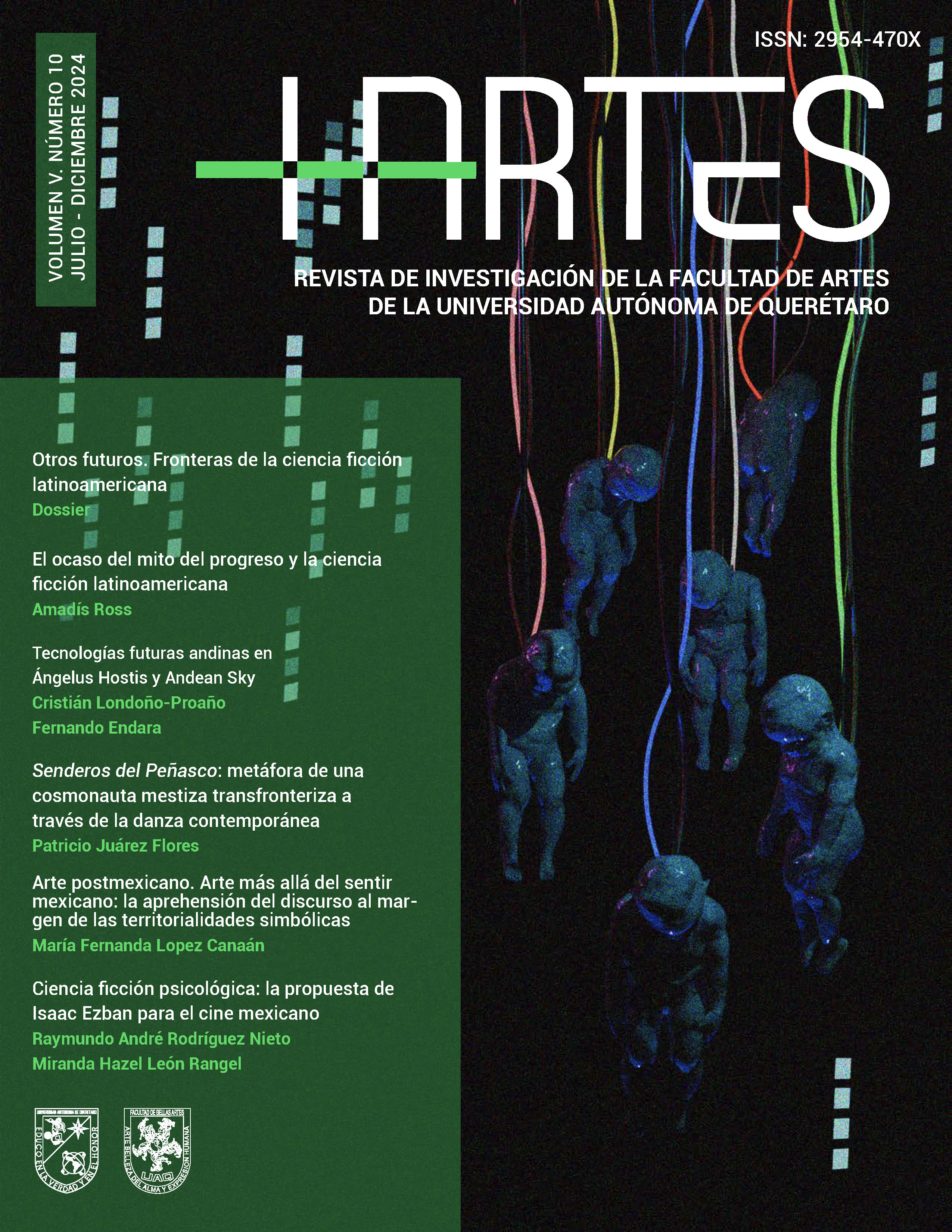Abstract
The present article addresses the aesthetic-political discourse of the contemporary dance piece "Senderos del Peñasco," in which the possibilities of imagining the dancing body as a repository of memories and a site of enunciation are explored. In a creative process guided by a multidisciplinary team, the story of its director and performer as a mestizo woman artist and migrant is the starting point from which a scenic metaphor is elaborated through a dancing body that questions the invisibility and marginalization of certain social groups based on their gender, skin color, and ethnic origin. From an anthropological perspective, the article examines the concepts of the body as a living archive and autobiography as tools for constructing artistic discourses that engage with social reality. The conclusions argue that the exploration of memory through the body provides a space for rethinking and reinterpretation of our stories and that, in the case of contemporary arts, their configuration as aesthetic-political discourses implies other possible ways of exploring and speaking about ourselves.
References
Alcaide, A. (2016). “Autobiografía, memoria e identidad en la obra de mujeres artistas migrantes”. Centro Journal, 28(1). pp. 112-143.
Anzaldúa. G. (1987). Borderland / La frontera. The new mestiza. Aunt lute books.
Boletín de prensa. (2023). Senderos del Peñasco Inicia Temporada en México, Una Obra de Danza Contemporánea Sobre la Memoria, Las Migraciones y Los Linajes Indígenas [Boletín de prensa].
Castro, S. (1998). “Geografías poscoloniales y translocalizaciones narrativas de ‘lo latinoamericano’. La crítica al colonialismo en tiempos de la globalización”. En Follari, R. y Lanz, R. (comps.) Enfoques sobre posmodernidad en América Latina, pp. 155-182. Editorial Sentido.
Cornago, Ó. (2020). “El archivo como ficción operativa: la autoridad suspendida”. Artilugio, (6), pp. 141-172.
de Diego, E. (2011). No soy yo. Autobiografía, performance y los nuevos espectadores. Siruela.
Fiadone, A. (2007). Simbología Mapuche. En territorio Tehuelche. Maizal Ediciones.
Mignolo. W. (comp.). (2014). Género y decolonialidad. Ediciones del Signo.
Le Bretón, D. (2010). Cuerpo sensible. Metales Pesados.
Lugones, M. (2014). “Colonialidad y Género: Hacia un feminismo descolonial”. En Mignolo, W. (comp.) Género y decolonialidad. Ediciones del Signo.
Rancière, J. (2010). El espectador emancipado. Ediciones Manantial SRL.
Salcido, M. (2019). Performance. Hacia una filosofía de la corporalidad y el pensamiento subversivos. Instituto Nacional de Bellas Artes y Literatura / Centro Nacional de Documentación e Información Teatral Rodolfo Usigli
Solís, M. y Juárez, P. (2023). “La poética del agrado: un proyecto de danza relacional y artefacto de resignificación femenina”. Culturales, 11, pp. 1-31. https://doi.org/10.22234/recu.20231101.e738
Stecher, L. y Rothe, T. (2019). “Epílogo”. En Danticat, E. Crear en peligro: el trabajo del artista migrante. Banda Propia

This work is licensed under a Creative Commons Attribution-NonCommercial-ShareAlike 4.0 International License.
Copyright (c) 2024 HArtes


